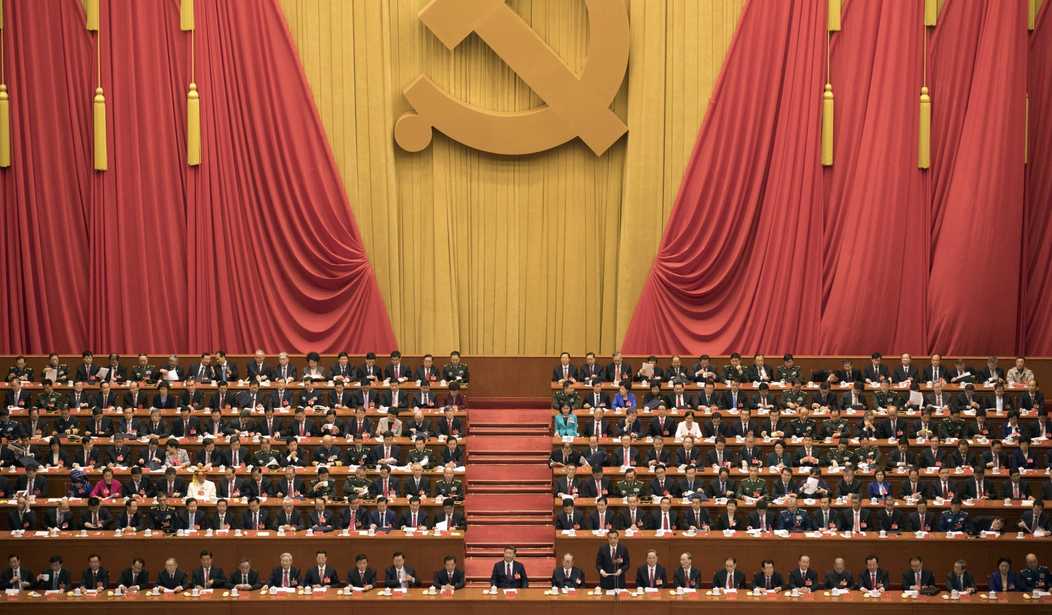On Sunday night, Chinese authorities launched coordinated raids against Early Rain Covenant Church in Chengdu, the provincial capital of Sichuan. About 100 Christians from the Protestant church, which is not sponsored by the Chinese government, were taken into custody. As the raid took place, church members’ personal social media accounts and cell phone group discussions were blocked around 9 p.m., and the church’s telephone line was cut.
Google has agreed to work with the Chinese government to create a censored search platform, sparking protests from within the company. This raid, reported Monday by the South China Morning Post, sends a chilling warning as to exactly what the Chinese government would do with the help Google has offered.
China’s government seems intent to implement George Orwell’s “1984” with facial recognition, data mining, a social credit system, and roving electronic “doves” to watch over citizens. The communist ideology empowers the government to exercise tyrannical control over its citizens, and just two months ago the world’s eyes were opened to the horrific camps China uses to “re-educate” Uighur Muslims in Xinjiang.
President Xi Jinping has declared that religion in China “should be Chinese in orientation,” an outright threat to religions that find their basis in the Middle East, such as Judaism, Christianity, and Islam.
The Sunday night raid suggests that China has no qualms about using technological power — surveillance and blocking — to target individuals before arresting them for unsanctioned religious worship.
Zhang Guoqing, assistant deacon of the Early Rain Covenant Church, was released on Monday morning after his arrest in the raids. He told the South China Morning Post that he is now being watched around the clock by “security personnel” in his home.
Zhang was headed to the home of pastor Wang Yi, whose house was raided. The pastor and his wife were nowhere to be found. “His home was ransacked. It was a mess,” Zhang told the Post. “The police said our church is an illegal organisation and we cannot attend any more gatherings from now on.”
These Christians had their faith effectively silenced by “1984”-style government power.
Many of the church elders are still in hiding. Police tracked down church members and asked them to sign a letter pledging never to attend worship services in the future.
“This round of crackdown is unusual as it seems that the authorities want to close the church down for good,” elder Li Yingqiang told the Post. “Our social media channel accounts such as WeChat were not closed in previous rounds and they have taken a large number of our members into custody this time. The scale was unprecedented.”
Li pledged that the church would continue its illegal worship services, regardless of the attacks. “Even if we are down to our last five, worship and gatherings will still go on because our faith is real,” he declared.
“Persecution is a price worth paying for the Lord. We would rather live through it than to hide our faith and we hope more Chinese churches will speak up and stand with us,” the elder added.
China Aid’s Bob Fu told the Post the raids represented a major escalation of religious persecution in China. He reported more than 10,000 cases of detention of Christians this year, an increase from the 3,000 cases in 2017. In September, Beijing police closed the Zion Church, one of the largest Protestant churches in China with more than 1,500 regular attendees.
Last year, China banned performances of Handel’s “Messiah.” As Christmas nears, Christians in China and across the world look to the Second Coming of Jesus Christ. For Chinese Christians who find the government silencing their phones before a raid, Jesus’ Second Coming cannot come fast enough.
Follow the author of this article on Twitter at @Tyler2ONeil.









Join the conversation as a VIP Member